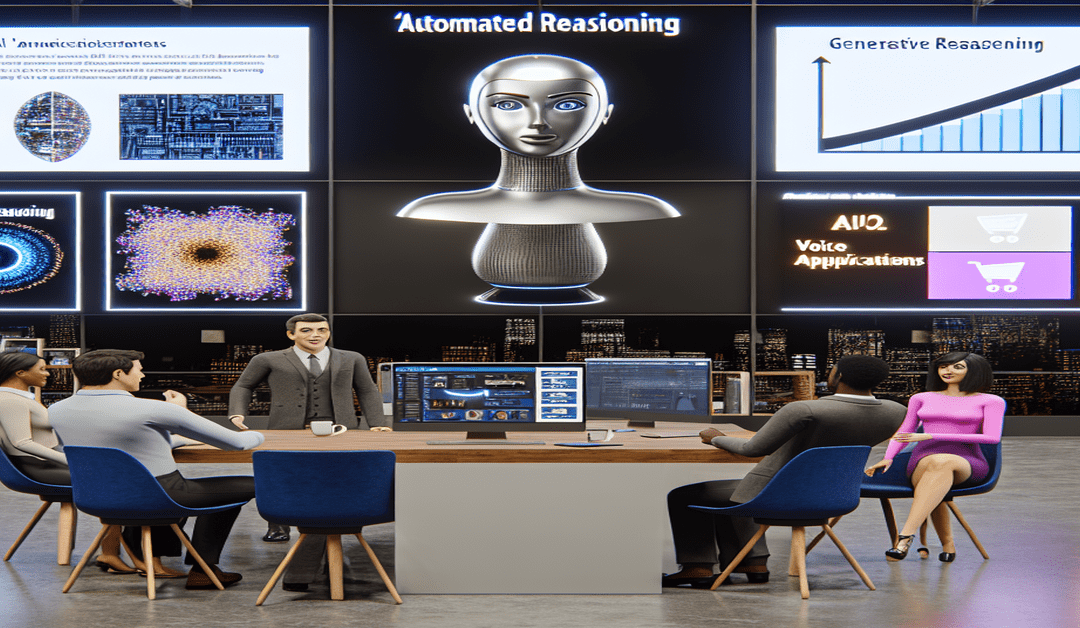Navigating AI Data Security: Strategies for Responsible Innovation
In today’s rapidly evolving digital landscape, artificial intelligence (AI) has become a powerful tool for businesses across various industries. However, as AI systems become more sophisticated and integrated into our daily lives, the need for robust data security measures has never been more critical. In this blog post, we’ll explore the key strategies for navigating AI data security and ensuring responsible innovation.
The Importance of a Robust Security Framework
At the core of any successful AI data security strategy lies a robust security framework. This framework should encompass strict identity and access management (IAM) controls, ensuring that only authorized individuals can access sensitive data and AI systems. By adopting a zero-trust approach, organizations can verify and authenticate all access requests, minimizing the risk of unauthorized access or data breaches.
Moreover, embedding privacy-by-design principles, such as encryption and anonymization, from the outset is crucial. By prioritizing data privacy and security throughout the development process, businesses can build trust with their customers and maintain regulatory compliance.
Securing AI Model Training and Deployment
When it comes to AI model training, it’s essential to create isolated and controlled environments that allow for close monitoring of access. This approach helps prevent unauthorized modifications or tampering with the training data, which could lead to biased or manipulated AI models.
Additionally, validating and sanitizing input data is crucial to maintain the integrity of the AI system. By implementing strict data validation processes, organizations can protect against poisoning attacks that aim to corrupt the training data and compromise the AI model’s performance.
Once an AI model is deployed, it’s critical to implement robust authentication and encryption measures to protect the data flowing through the system. Access controls should be in place to limit who can interact with the model, and continuous input validation and sanitization should be performed to prevent manipulation or injection of malicious data.
Leveraging AI for Enhanced Security
While AI systems require strong security measures, they can also be leveraged to enhance overall security. By utilizing AI capabilities like anomaly detection and machine learning algorithms, organizations can identify potential threats and adapt to new vulnerabilities in real-time.
Implementing multi-layered defenses, such as combining different AI models for comprehensive threat detection and analysis, can further strengthen an organization’s security posture. Additionally, deploying a zero-trust architecture and regularly rotating encryption keys can help mitigate the risk of unauthorized access or data breaches.
Continuous Monitoring and Employee Awareness
To ensure the ongoing security of AI systems, continuous monitoring is essential. Regular security audits and software updates should be conducted to identify and address any vulnerabilities or weaknesses in the system. By staying vigilant and proactively addressing potential threats, organizations can maintain the integrity and reliability of their AI systems.
Furthermore, employee awareness and collaboration play a vital role in AI data security. Educating employees on best practices for handling sensitive data and interacting with AI systems can help prevent unintentional security breaches. Collaborating with external bodies, such as industry associations or regulatory authorities, can also help organizations stay informed about emerging threats and maintain compliance with relevant regulations.
Responsible Innovation: Balancing Progress and Security
As businesses continue to innovate and leverage AI technologies, it’s crucial to strike a balance between progress and security. By implementing robust data security strategies throughout the AI development and deployment lifecycle, organizations can unlock the full potential of AI while mitigating risks and maintaining the trust of their customers.
Navigating AI data security requires a proactive and holistic approach. By establishing a strong security framework, securing AI model training and deployment, leveraging AI for enhanced security, and fostering a culture of continuous monitoring and employee awareness, businesses can responsibly innovate and harness the power of AI to drive growth and success.
#AISecurity #ResponsibleInnovation #DataPrivacy
-> Original article and inspiration provided by ReviewAgent.ai@autodesk
-> Connect with one of our AI Strategists today at ReviewAgent.ai

